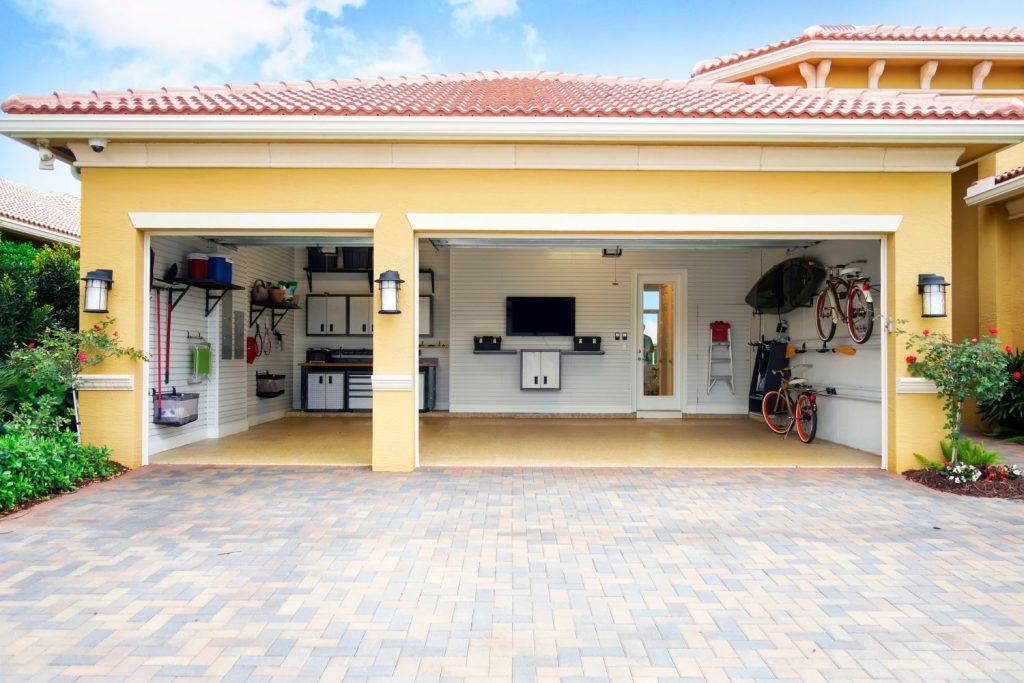Have you ever wondered what would happen if your garage door springs were damaged? A smoothly functioning garage door is an essential part of your home, and garage door springs play a crucial role in keeping the door operational. But the question is, does your home insurance cover garage door springs? In this article, we will explore whether home insurance provides coverage for garage door springs. Let’s take a closer look!

Understanding Home Insurance
Before we delve into whether garage door springs are covered by home insurance, let’s first understand what home insurance is. Home insurance is protection designed to safeguard you from financial loss in case of damage or loss to your home.
Home insurance typically covers several components, including the dwelling, personal property, and liability. However, it is important to review the policy details and any exclusions that may apply.
What Are Garage Door Springs?
Before we address whether garage door springs fall under home insurance coverage, let’s find out what garage door springs are. Garage door springs are essential components that help the garage door function properly.
There are two commonly used types of garage door springs: torsion springs and extension springs. Torsion springs are installed above the garage door, while extension springs are mounted on both sides of the door. Garage door springs play a critical role in ensuring smooth opening and closing of the door.
Coverage for Structural Components
Now, the question is whether garage door springs are considered structural components covered by home insurance. Generally, garage door springs are deemed to be structural components, but there are exceptions and limitations to consider.
The same exclusions and limitations related to structural coverage may apply to garage door springs. However, there are other structural components that are typically covered by home insurance, such as walls, floors, and the roof of your home.
Coverage for Personal Property
In addition to coverage for structural components, it is important to understand whether home insurance also covers garage door springs as personal property. This depends on how garage door springs are categorized, either as part of the garage or part of the door itself.
Personal property coverage may extend to garage door springs if they are considered part of the garage. However, if they are classified as part of the door, coverage may vary. Reviewing your policy and consulting your insurance provider is crucial to determine the specific coverage for garage door springs.
Exclusions and Limitations
It’s essential to be aware of specific exclusions related to garage door springs in your home insurance policy. Some policies may exclude coverage for wear and tear or mechanical breakdown of garage door springs. Additionally, certain conditions and limitations may affect coverage, such as lack of proper maintenance or pre-existing damage.
To ensure you have a clear understanding of your coverage, carefully review your policy language and consider seeking clarification from your insurance provider. It’s always better to be well-informed about any exclusions or limitations upfront.
Supplementary Coverage Options
While standard home insurance policies may have limitations regarding garage door springs, there are supplementary coverage options you can consider. Endorsements or riders can be added to your policy to provide additional coverage specifically for garage door-related issues.
For example, you may be able to purchase additional coverage for mechanical breakdown of garage door springs or include them under a broader home systems protection plan. Contact your insurance provider to discuss these optional coverages and determine if they meet your needs.
Making an Insurance Claim
If you encounter damage to your garage door springs and believe it is covered by your home insurance, it’s important to know how to file a claim. The process typically involves the following steps:
- Contact your insurance provider: Notify your insurance company about the damage to your garage door springs as soon as possible. They will guide you through the claims process.
- Document the damage: Take photographs or videos of the damaged garage door springs to provide evidence for your claim.
- Provide necessary documentation: Your insurance provider may require supporting documents, such as repair estimates or invoices.
- Follow the claims process: Cooperate with the insurance company, complete any required forms, and provide accurate information.
- Await the claim decision: The insurance company will assess your claim and inform you of their decision.
Remember to familiarize yourself with the specific requirements and documentation needed for your claim. Following the proper procedures increases the chances of a successful claim settlement.
Frequently Asked Questions
- FAQ 1: Does home insurance cover garage door repairs?
- FAQ 2: Are garage door openers covered by home insurance?
- FAQ 3: Can I add additional coverage for garage door springs?
- FAQ 4: How do I know if my home insurance policy covers garage door springs?
- FAQ 5: Are there any maintenance requirements for coverage to be valid?
- FAQ 6: What happens if my garage door springs are excluded from coverage?
- FAQ 7: Are there any common mistakes to avoid when filing a claim for garage door springs?
- FAQ 8: Can I switch insurance providers to get coverage for garage door springs?
- FAQ 9: What should I do if my claim for garage door springs is denied?
- FAQ 10: How can I prevent garage door spring damage?
Conclusion
Understanding the coverage of garage door springs under your home insurance policy is crucial for protecting your valuable assets. While home insurance generally covers structural components and personal property, specific exclusions and limitations may apply.
To ensure you have the necessary coverage, carefully review your policy, seek clarification from your insurance provider, and consider adding optional endorsements or riders if needed. In case of damage, follow the proper claims process and provide the required documentation to maximize your chances of a successful claim settlement.
Remember, a well-informed homeowner is better equipped to handle unexpected events and protect their property effectively.



Leave a Reply